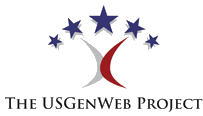African American Resources
The names of slave owners can be an important resource when researching African American ancestors. Slaves were known only by a first name until the end of the Civil War in 1865. It is estimated about 20% of freed slaves then took the last name of their former owner as their own. Others chose a last name for a variety of reasons, not unlike the English 800 years earlier.
Some freed slaves chose the first name of one of their ancestors as their own last name, for example Johnson. Some chose someone famous, Washington or Jefferson. Others used their occupation or skill as a last name, Cooper or Smith. Freeman, for obvious reasons, became a popular surname. A few slaves had been using secret last names known only among themselves.
1810 Slave Owners
The population of Montgomery County in 1810 was 12,975, including 1,724 slaves (13%). There were 407 slave owners. The largest was Thomas Owings with 43 slaves.
Thomas Owings descended from a wealthy family who grew tobacco in Maryland using slaves. In 1810 Thomas owned the Bourbon Iron Furnace (now in Bath County) and used slaves in that enterprise.
The county was geographically larger at that time. Bath, Powell and Menifee were later formed from parts of Montgomery County.
By 1850, slave ownership in Montgomery County had peaked with 532 slave owners owning 3,071 slaves. There were also 165 free African Americans in the county.
1860 Slave Owners
Montgomery County was geographically smaller in 1860 that it was in 1810. The population was 7,859, including 2,752 slaves. While Montgomery County had a significant slave population at 35%, other counties such as Fayette were much higher.
As threats of succession and civil war loomed, slavery was in decline in Kentucky. By 1860 owners were down to 479 in Montgomery County. The number of free African Americans had also declined to 139, as many moved to northern states to find work.
Following the war, the African American population in 1870 in Montgomery County was 2,636. About 174 African American Union Veterans listed Montgomery County as their birthplace.
1864-1865 Union Colored Troops Muster Rolls
Colored Troops Regiments were raised during the last two years of the Civil War by the Union Army. They were comprised of 178,000 free blacks and freed slaves. Kentucky mustered in over 23,000 black soldiers. Each soldier had a first and last name, whereas slaves were generally not permitted to have a last name.
Montgomery County African Americans in the Navy During the Civil War
414 Kentucky African Americans served in the Navy during the war. 5 sailors were from Montgomery County. They served in the fleet, as well as on the inland rivers across the nation.
- John Mack, 26, Plasterer, 06 Aug 1863/1year/Bolivar, MS, 1st Class Boy, Prairie Bird
- Fielding Smith, 25, Wagoneer, 21 Dec 1863/1year/Clarksville, TN, Landsman, Silver Lake
- Edward Stubblefield, 27, Cook, 09 Jan 1865/3years/Cairo, IL, Ordinary Seaman, NL
- Lymas Wisdom, 28, Laborer/Gardener, 27 May 1863/3years/Clarksville, TN, 1st Class Boy, Milwaukee
- John Woods, 24, Slave, 29 Jan 1863/1year/Cairo, IL, 1st Class Boy, NL
Slavery and the Lulbegrud Baptist Church
Prominent landowners James French, Jilson Payne and others belonged to the Lulbegrud Baptist church a few miles southwest of Mt. Sterling. Some of their slaves were allowed to attend and were also members. Many early Kentucky Baptist churches accepted African Americans as members. Many had brought their slaves with them from Virginia, where they had also been members.
Slavery became one of the top issues in the area Baptist churches as early as 1800, with outspoken abolitionists, such as David Barrow, preaching against slavery. Barrow preached at Goshen, Lulbegrud and Mt. Sterling Baptist churches. He also operated a subscription school at Lulbegrud, as discussed in the school room page on this site.
The Lulbegrud church's minutes dated 1793-1804 lists slaves who were members.
Male Blacks:
- Property of Danl; Moses
- Property of French; James, Sam
- Others; G. Fairfax, Washington, George, Jeyse, Ambrose, Nat, Daniel.
Female Blacks:
- Property of Lumas; Linny
- Property of Danl; Betty, Ann, Lucy, Priscilla
- Property of French; Charlotte, Nanny
- Property of Dooley; Sarah
- Others; Dinah, Sarah, Betty, Jane, Sulky, Lelah, Agnes, Hannah, Rose, Winney, Sucky, Hannah, Nanny, Florence, Hannah, Sucky, Dorcas, Feby.
The minutes on May 16, 1801 state "Church met and after prayer proceeded to business. Received Brother Abraham Miller and his wife Elizabeth by letter. Also Sister Priscilla a black woman property of Daniel by letter. Received Jacob Morris, Aaron Miller and Charles Miller by experience and baptism." This means Priscilla was transferring her membership from another (unknown) Baptist church to this one.
David Barrows
A teacher, Mr. Barrows was also an outspoken aboltionist and proponent of emanicpation in the early 1800s. He published a number of articles that incured the wrath of others in the Baptist church, as well as the local community. This 1849 newspaper article references an article Mr. Barrow wrote back in 1809.
"For the Examiner.
Progress of Emancipation.
Stanford, April 7, 1849.
MESSRS. EDITORS: The cause of Emancipation is making rapid growth in this and all the adjoining counties. Its progress may be seen from day to day. Many of the ablest, wealthiest, and most influential citizens of Lincoln are warm advocates of the cause of gradual emancipation. Nor is it confined to any party, in religion or politics. Gentlemen who are large slaveholders, belonging some to one, some to the other political party, and connected with various religious denominations, and others of no religious persuasion, do not hesitate to avow their opinions and discuss them with their neighbors. I talked with one of the oldest and most intelligent citizens of the county, who claimed for old Lincoln the honor of the first movement ever made upon the soil of Kentucky in behalf of universal freedom. He stated to me a fact I had not before known, that the Rev. John BAILEY, of the Baptist Church, the first minister in point of time and talents of that religious persuasion in Kentucky, when in the first Convention to frame a Constitution for this State, as the delegate from this county, offered a proposition in favor of emancipation. -- This proposition was maintained by Mr. BAILEY in a most able and eloquent speech; and was also supported by the Rev. David RICE, of the Presbyterian Church, and other members of the Convention. My informant says the speech of Rev. Mr. BAILEY, made on this subject in the Convention was published and that he thought some of the copies were extant, and could be found in possession of some of his numerous descendants in the county. I have made a fruitless search, so far, to procure one. The high reputation of the Rev. Mr. BAILEY as a man of great talents and as the first pulpit orator of his day in the State, his great influence in Church and State in the early settlement of Kentucky, together with the great interest felt upon the subject of emancipation, made me quite anxious to procure a copy of his speech for republication. Some estimate may be formed of the talents and influence of the Rev. John BAILEY, when it is remembered that he was a member of both the Constitution Conventions of Kentucky. He served in the Convention at Danville in 1792, as a member from Lincoln county; in the Convention at Frankfort, in 1799, which framed the present Constitution, he sat as one of the members from Logan county.
In my search for the Rev. John BAILEY's speech, I was handed a mutilated copy of an old pamphlet of forty-eight pages on the subject of slavery, by the Rev. David BARROW of the Baptist Church. The title page is as follows:
INVOLUTARY,
Unmerited, Perpetual, Absolute Hereditary,
Slavery Examined
On the Principles of
Nature, Reasons, Justice, Policy and
Scripture.
By David BARROW.
This pamphlet is not to be sold, but given away.
Lexington.
Printed by D. & C. BRADFORD.
1808.
This old pamphlet, with its rather quaint title page, contains quite an able discussion of slavery, both in the abstract and concrete. Mr. BARROW was evidently a most earnest friend of freedom and human rights. he believed, as all men must sooner or later, that all men by nature and of right ought to be free, and that it is the interest of all that all should be free. This pamphlet would be regarded by the ultra pro-slavery men as more ultra than the views of that earnest and fearless man C. M. CLAY. Yet the citizens of Lexington, more than forty years ago tolerated the man that wrote it, and printers that published it. That pioneer in western typography Daniel BRADFORD, would hardly have ventured four years ago to have published such a book in the city of Lexington. But now the press is free, and the people everywhere are asking for information upon this exciting and virtually interesting question. The non-slaveholders are beginning to take an interest in the question, and many of them already understand how deeply they are interested in the removal of slavery from our soil. The people, slaveholders and non-slaveholders, in this county, held a meeting on last Monday, and appointed delegates to the Emancipation convention at Frankfort. the people of Boyle have already held a similar meeting; and the people of Garrard, I hear, are to hold a meeting for the same purpose in a few days. In Mercer the meeting taken place on the 14th last. In Rockcastle the friends of emancipation will hold a meeting; and I learn that several of the mountain counties will move on the subject at an early day. The cause has many warm and ardent friends in the counties of Russell, Wayne, Pulaski, Whitley, Laurel, Knox, Harlan, Clay, &c. and information on this great subject should be laid before them at an early day. The people have but to understand this greatest of all questions, and their decision will be emphatically pronounced at the polls, and the great curse of slavery, by the power and authority of the people, will be removed gradually and forever. Let the convention at Frankfort devise some means to bring this subject fully and fairly to the minds of all the people, and little else will be left to be done. We have everything to encourage and nothing to dispirit us. Let us press on then in this great cause of Kentucky's glory. Let us not falter. Let us know no such word in our vocabulary as fail. The "people are coming" and the politicians are getting out of their way. The spirit of progress and of universal freedom is abroad.
Source: The Examiner. Louisville, KY. 14 Apr 1849, Image 2. Chronicling America Newspapers."
Transcribed by D. Rush, December 8, 2019
The French family
website has traced the descendants of quite a number of their former slaves.
Richard Griffin
was one of the founding members of the Lulbegrud Baptist church in 1793. Three slaves are named in his 1824 estate settlement. "The boy Danzel goes to Terry Griffin, the girl Dinah goes to Ann (Griffin) Allen, and the woman Rachel goes to Elizabeth (Griffin) Treadway and Rhoda (Griffin) Fletcher."
Contacts

| Marvin Allen |
| Suzanne Shephard |
| Jeff Kemp |

